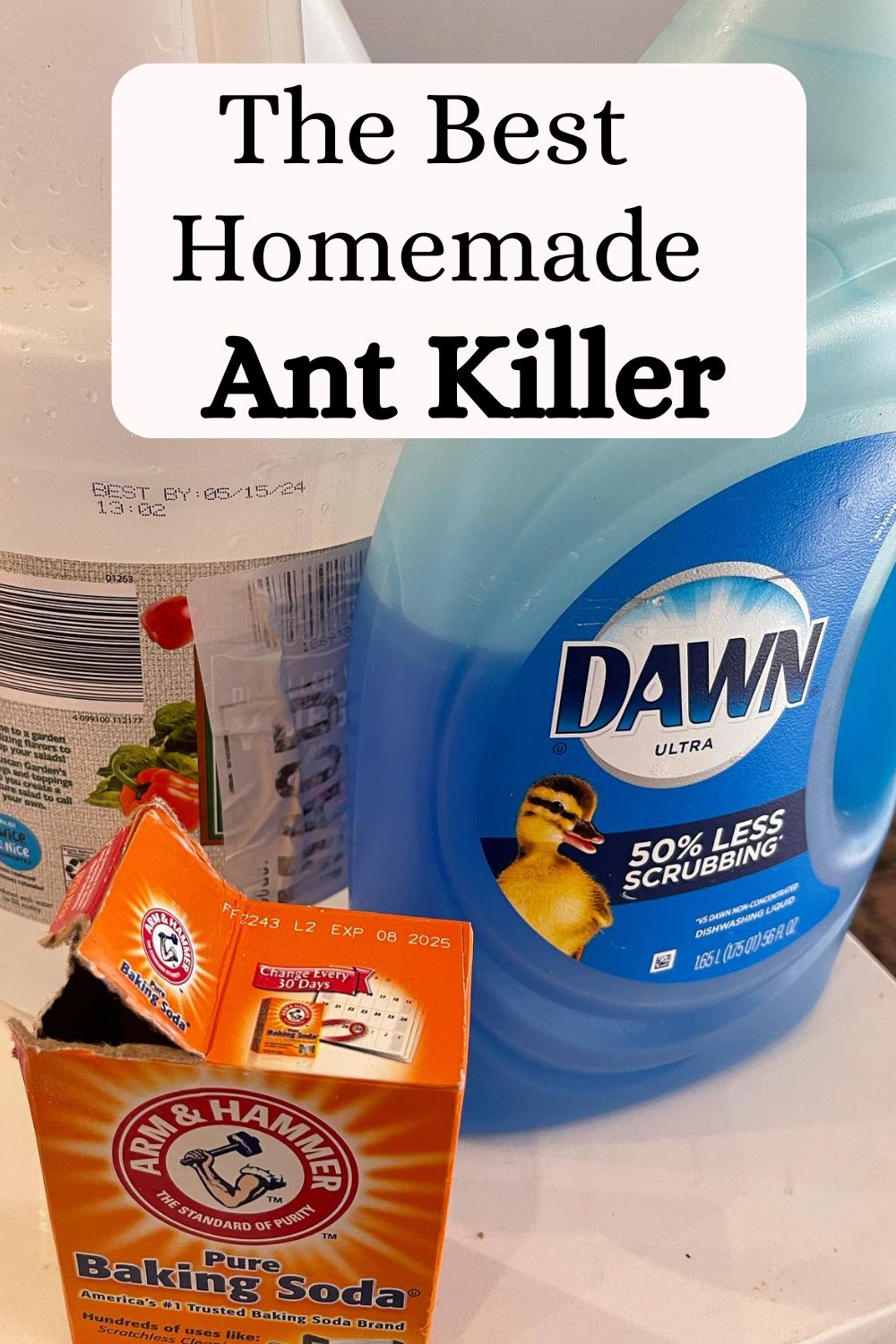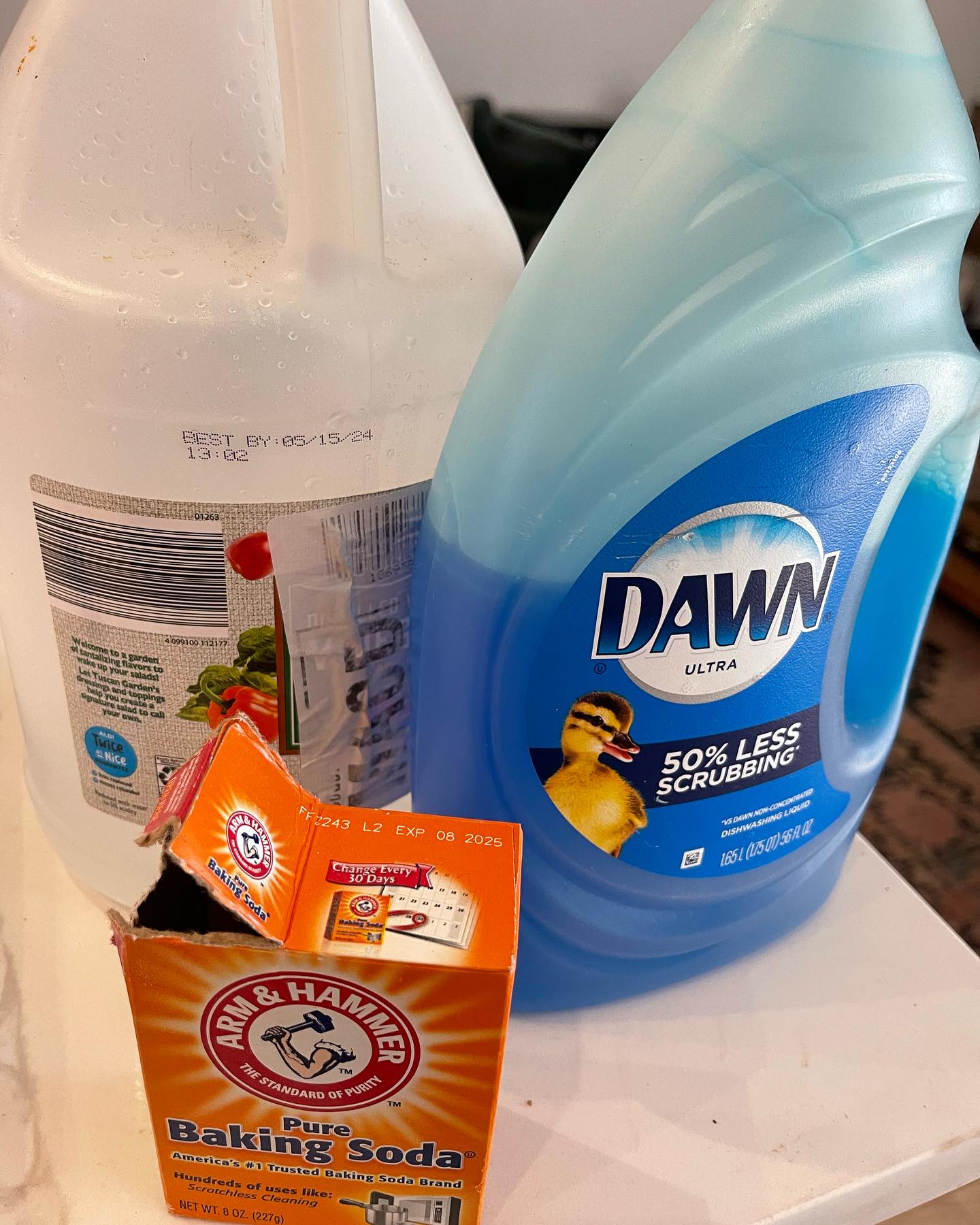Ants may be tiny insects, but you cannot underestimate the magnitude of damage they can cause. This includes property damage, attracting other pests, and posing health risks. Therefore, ignoring their presence in your home is not an option.
Luckily, there are plenty of ways to get rid of ants from your property, including DIY ant killer without borax.
The upside of using natural repellents over conventional methods is that the former is safer for the environment and living organisms.
This post explores everything about getting rid of ants using a DIY ant killer without borax, including preparation and how to use it.
Natural Ant Killer Without Borax
Getting rid of stubborn ants after they invade your home or take over your garden, especially in the summer, can feel like an uphill task.
Applying synthetic chemicals could also add to your worries because of the danger they pose to plants.
Numerous store-bought synthetic ant repellents are not only harmful but unsafe to keep near kids and pets, not forgetting your living and dining spaces.
The good news is you don’t have to worry about that anymore, seeing that you can make natural ant killer and apply it on the ants and around plants.
Many homeowners who have considered and tried this solution before will tell you it works.
In addition, since you’ll find ants inside and outside your house, it is imperative to use a natural ant killer or outdoor ant killer homemade for those found outside your home.
However, it’s important to mention that some natural ant repellent, such as cinnamon, baking soda, vinegar, and lemon, will only resolve the ant menace but may fail to eliminate the entire infestation.
Related Posts:
The efficiency of these remedies is contingent on the ants’ location, which is why understanding these insects and their behaviors are essential.
Natural ant deterrents containing borax may work, but the concoction is hazardous to your children and pets.
On the other hand, chalk is a natural ant repellent safe for pets but ineffective at controlling ants.
Chalk will repel ants momentarily. However, ants are clever creatures; they will forge their way around the deterrent, and within no time, you’ll see them popping up in your house.
Thankfully, the next section will show you the best homemade ant killer recommended by experts, its ingredients, and how to make it.
How To Make DIY Ants Killer Without Borax
Having established that most store-bought ant killer are hazardous to your household and pets, knowing how to make a natural ant killer will help you immensely.
That way, you will control these annoying creatures in your house, trashcans, at their entry points, and around your plants.
To make a DIY ant killer, you will need the following:
- Water.
- Two cups of white vinegar or apple cider vinegar.
- Two tablespoons of baking soda.
- Two tablespoons of liquid dish soap.
Procedure
- Combine vinegar, baking soda powder, and dishwashing liquid in a large bowl.
- Stir the mixture gently, and then pour it into an industrial spray bottle.
- Fill the remaining space in the bottle with water as required.
- Since baking soda and vinegar (when combined) produce a lot of foam, be cautious when applying this ant deterrent spray over your sink. As a result, experts advise you to add the contents gradually into an industrial spray bottle as you wait for the foam to subside before introducing more.
- Use a sizeable industrial spray bottle since it lasts longer and doesn’t clog.
- Allow the foam to settle before tightening the bottle’s lid.
NOTE: Cheap bottles can cause clogging problems and require frequent replacements.
Ants, it appears, create an invisible route to help them navigate their way from their dwellings to your house, which is their food supply.
The homemade ant deterrent spray will not just eliminate the invisible trail; it also works as a repellant that these crawling insects will avoid.
How To Use Homemade Ant Killer Spray
Making a natural ant-repellent spray is one thing; knowing how to use it is another. With that in mind, the procedure below will help you use your natural ant killer effectively.
- Take your best homemade ant killer and spray it on every ant you see.
- After spraying the ants, spray their routes, access areas (such as cracks in the flooring and windowsills), and the surrounding environment.
- Let the ant killer soak for a few minutes before wiping with a moist towel.
- Spray the DIY ant killer on insect entry points, and let it settle for a while. It will deter them from returning.
- Finally, remove any food sources or crumbs that could attract or sustain an army of ants.
Using natural ant deterrents as outlined above not only keeps ants away but is also considered safe to use around kids and pets-not to mention they smell nice.
How to Keep Ants Away Naturally
Apart from spraying ants using natural ant killers as described above, here are a few things you can do to keep ants away naturally:
- Seal the cracks and holes on your floor and walls, which ants use as entry points to your home. Check the kitchen cupboards, around doors, and window sills.
- Ensure your household eats all the food in the dining area rather than the lounge or the bedroom.
- Sweep or vacuum your floor regularly.
- Clean your pet’s food bowls and eating areas daily.
- Ensure you clean the kitchen benches twice daily (i.e., morning and night).
- Avoid leaving pet bowls outside all day. Alternatively, use ant-proof pet dishes.
- Get rid of the garbage and wash the trash cans regularly with soapy water.
- Consider using artificial indoor plants and doing away with those harboring insects.
Can You Use Ant Killer Around Plants?
Even though ant killer sprays are classified as poisons, you can use them around plants, but experts advise you to do a spot test before embarking on the task. It is because you don’t want to hurt your plants, especially those sensitive to some ingredients used in the ant killer spray.
You can use the ant killer to eradicate harmful fireflies from the garden and keep them at bay, but apply diatomaceous earth after spraying. Also, remember that ants aerate the earth, and that is helpful to some degree.
Final Thoughts
Ant infestation is annoying, and so is trying to get rid of them repeatedly without success.
Some homeowners have resorted to synthetic ant killers, oblivious to the fact that the manufacturers laced them with hazardous chemicals.
Fortunately, this post has outlined a non-toxic approach to controlling these crawling insects, plus an easy-to-follow procedure for making natural ant killer.
Be sure to use it on the ants and their invisible scent trails to curtail their activities.

Hey there, I’m Derek Schew, a writer for Lawnholic.com, where we cover everything and anything related to lawns. As someone who’s spent countless hours tending to my own lawn, I’m passionate about sharing my knowledge and helping others achieve the perfect yard. From lawn care tips to product reviews, I’m committed to providing our readers with the most accurate and up-to-date information available. So whether you’re a seasoned lawn enthusiast or just getting started, I invite you to join our community and discover the joys of a lush, green lawn.


